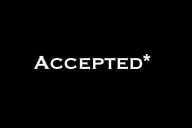You have /5 articles left.
Sign up for a free account or log in.

Career Advance Colorado seeks to bridge the workforce gap among students by offering free community college tuition.
Colorado Community College System
To close labor gaps in high-demand fields, the state of Colorado has allocated $38.5 million to cover enrollment costs for seven training programs at community and technical colleges.
Career Advance Colorado will fund current and new student tuition, fees and books starting this fall for those learning construction, education or early childhood education, firefighting, forestry, law enforcement, or nursing.
Administrators hope the open-access model will promote diversity and equal opportunities for learners of all types as well as support industry needs.
The background: In fall 2022, the Colorado Community College System (CCCS) launched Care Forward, a zero-cost program for students enrolled in a health-care certification program, including certified nursing assistant (C.N.A.), dental assistant, paramedic certificate, medical billing and coding, and more.
When the health-care workforce was stretched thin due to COVID-19, the state Legislature launched Care Forward, says Landon Pirius, vice chancellor for academic and student affairs. Senate Bill 22-226 allocated $26 million in state recovery dollars for the initiative.
Career Advance Colorado, similarly, received funding from House Bill 23-1246, which includes $5 million to launch two new short-term degree programs for nursing students.
What’s the Need?
Colorado has a growing demand for registered nurses and elementary and secondary educators across the state. Every year, there are 4,000 job openings for R.N.s and 3,700 for educators, according to data from the Colorado Talent Pipeline report.
Construction, police and sheriff’s officers, and firefighting jobs are projected to grow 20, 16 and 15 percent over the next 10 years, respectively.
Nineteen colleges, including the CCCS system and technical colleges, will offer at least one Career Advance Colorado pathway, and offerings exist in person and online.
“It’s accessible geographically, it’s accessible by modality—whether it’s online or in-person and by making it free, you make it accessible economically,” Pirius says.
Open access: The program has two qualifications for students to participate: they must complete a federal or state financial aid form (FAFSA or CAFSA) and they must be enrolled in one of the at-need workforce programs. There is no state residency or GPA requirement.
“We have pretty significant workforce shortages in these identified areas, [and] we need as many people who are interested … to get in through their education and into these jobs,” Pirius explains. “Putting these other limitations [in place] could narrow the number of people and then not address the workforce shortages.”

Students interested in forestry work can earn their associates degree for free at a community college in Colorado thanks to Career Advance Colorado.
Colorado Community College System
There are also no hidden costs or “tricks” associated with Career Advance Colorado, Pirius says. Students who stop out don’t have to repay back funds, for example, because officials recognize students’ lives are complicated and life happens.
Funding will be distributed on a first-come, first-served basis this fall, meeting all need after federal and state dollars are applied to student accounts.
“That doesn’t mean that the Legislature may not decide to expand it or extend it, but at least for the moment, once the money’s gone, it’s gone,” Pirius says. “I can guarantee by six years, there will be no money left in this.”
The system doesn’t have specific plans for retention of students within the programs but will continue to lean into colleges’ supports like advising and tutoring, Pirius says.
Promoting success: To attract students to the program, CCCS will spend $80,000 on marketing and recruitment. The system partnered with six media organizations to accomplish a statewide reach, including TV and digital ads as well as sponsored content, says Lindsay Sandoval, communications manager for CCCS.
CCSC will market Career Advance Colorado to all types of learners—from traditional age to those who have stopped out or seek reskilling.
Next steps: Students will begin to reap the benefits of Career Advance Colorado this fall, and in the future Pirius hopes the program can expand to cover other at-need professions, like advanced manufacturing.
CCCS leaders will measure enrollment and credentials earned to gauge success of the program, as well as job placement after graduation and early-career earnings in the field.
If your student success program has a unique feature or twist, we’d like to know about it. Click here to submit.








